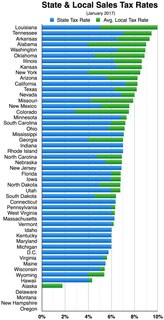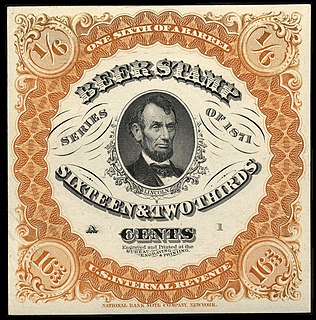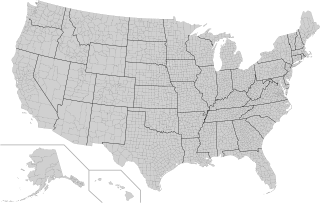Transaction privilege tax (TPT) refers to a gross receipts tax levied by the state of Arizona on certain persons for the privilege of conducting business in the state. TPT differs from the “true” sales tax imposed by many other U.S. states as it is imposed upon the seller or lessor rather than the purchaser or lessee. The seller/lessor may pass the burden of the tax on to the purchaser/lessee, but the seller or lessor is the party that remains ultimately liable to Arizona for the tax. TPT is imposed under 16 separate business classifications: amusement, commercial lease, job printing, membership camping, mining, owner builder sales, personal property rental, pipeline, prime contracting, private car line, publication, restaurant, retail, telecommunications, transient lodging, transporting, and utilities. [1] (Effective November 1, 2006, the Arizona State Legislature repealed the membership camping classification statute, reducing the total number of tax classifications from 17 to 16. [2] ) State tax rates for the various classifications are as follows: 5.5% for the transient lodging classification, 3.125% for the mining classification, 0% for the commercial lease classification, and 5.6% for all other tax classifications. [3] Taxes are imposed on the total gross receipts of taxable businesses, with the exception of prime contractors, who are taxed on 65% of their gross receipts. [4] All gross receipts for a person subject to tax under a particular tax classification are subject to tax unless otherwise specifically exempted or excluded by statute. Exemptions and deductions of one tax classification may not be used under another classification unless specifically delineated.
A gross receipts tax or gross excise tax is a tax on the total gross revenues of a company, regardless of their source. A gross receipts tax is similar to a sales tax, but it is levied on the seller of goods or service consumers. This is compared to other taxes listed as separate line items on billings, are not directly included in the listed price of the item, and are not a factor in markup or profit on company sales. A gross receipts tax has a pyramid effect that increases the actual taxable percentage as it passes through the product or service life-cycle.

Arizona is a state in the southwestern region of the United States. It is also part of the Western and the Mountain states. It is the sixth largest and the 14th most populous of the 50 states. Its capital and largest city is Phoenix. Arizona shares the Four Corners region with Utah, Colorado, and New Mexico; its other neighboring states are Nevada and California to the west and the Mexican states of Sonora and Baja California to the south and southwest.

Sales taxes in the United States are taxes placed on the sale or lease of goods and services in the United States. In the United States, sales tax is governed at the state level and no national general sales tax exists. Forty-five states, the District of Columbia, the territories of the Puerto Rico, and Guam impose general sales taxes that apply to the sale or lease of most goods and some services, and states also may levy selective sales taxes on the sale or lease of particular goods or services. States may also delegate to local governments the authority to impose additional general or selective sales taxes.
This page is based on this
Wikipedia article Text is available under the
CC BY-SA 4.0 license; additional terms may apply.
Images, videos and audio are available under their respective licenses.

The United States of America has separate federal, state, and local governments with taxes imposed at each of these levels. Taxes are levied on income, payroll, property, sales, capital gains, dividends, imports, estates and gifts, as well as various fees. In 2010, taxes collected by federal, state, and municipal governments amounted to 24.8% of GDP. In the OECD, only Chile and Mexico are taxed less as a share of their GDP.
Excise tax in the United States is an indirect tax on listed items. Excise taxes can be and are made by federal, state and local governments and are not uniform throughout the United States. Some excise taxes are collected from the producer or retailer and not paid directly by the consumer, and as such often remain "hidden" in the price of a product or service, rather than being listed separately.
Taxation in Canada is a prerogative shared between the federal government and the various provincial and territorial legislatures. Under the Constitution Act, 1867, taxation powers are vested in the Parliament of Canada under s. 91(3) for:
An ad valorem tax is a tax whose amount is based on the value of a transaction or of property. It is typically imposed at the time of a transaction, as in the case of a sales tax or value-added tax (VAT). An ad valorem tax may also be imposed annually, as in the case of a real or personal property tax, or in connection with another significant event. In some countries a stamp duty is imposed as an ad valorem tax.
A use tax is a type of tax levied in the United States by numerous state governments. It is essentially the same as a sales tax but is applied not where a product or service was sold but where a merchant bought a product or service and then converted it for its own use, without having paid tax when it was initially purchased. Use taxes are functionally equivalent to sales taxes. They are typically levied upon the use, storage, enjoyment, or other consumption in the state of tangible personal property that has not been subjected to a sales tax.
In 1996, several U.S. states and municipalities began to see Internet services as a potential source of tax revenue.
Taxes in India are levied by the Central Government and the state governments. Some minor taxes are also levied by the local authorities such as the Municipality.

An excise or excise tax is any duty on manufactured goods which is levied at the moment of manufacture, rather than at sale. Excises are often associated with customs duties ; customs are levied on goods which come into existence – as taxable items – at the border, while excise is levied on goods which came into existence inland.
Flint v. Stone Tracy Co., 220 U.S. 107 (1911), was a United States Supreme Court case in which a taxpayer challenged the validity of a federal income tax on corporations. The privilege of incorporation is a state function, and the challengers argued that only the states should tax corporations. The Court ruled that the privilege of operating in corporate form is valuable and justifies imposition of a federal income tax:
The business and occupation tax is a type of tax levied by the U.S. states of Washington, West Virginia, and, as of 2010, Ohio, and by municipal governments in West Virginia and Kentucky.
Complete Auto Transit, Inc. v. Brady, 430 U.S. 274 (1977), is a United States Supreme Court case regarding the Commerce Clause and sales tax.
The Interstate Income Act of 1959, also known as Public Law 86-272, is a United States statute that allows a business to go, or send representatives, into a state to solicit orders for goods without being subject to a net income tax. It is codified at 15 U.S.C. §§ 381–384.
Arizona v. New Mexico, 425 U.S. 794 (1976), is an opinion from the United States Supreme Court which denied a motion from the State of Arizona seeking authorization to file suit against the State of New Mexico by invoking the original jurisdiction of the court.
The policy of ‘’’taxation in the Philippines’’’ is governed chiefly by the Constitution of the Philippines and three Republic Acts.
Taxation in New Mexico comprises the taxation programs of the U.S state of New Mexico. All taxes are administered on state- and city-levels by the New Mexico Taxation and Revenue Department, a state agency. The principal taxes levied include state income tax, a state gross receipts tax, gross receipts taxes in local jurisdictions, state and local property taxes, and several taxes related to production and processing of oil, gas, and other natural resources.
Taxation in Missouri primarily takes the form of income taxes, sales taxes, and property taxes. The Missouri Department of Revenue administers and collects the income and sales taxes, including local sales taxes, whereas property taxes are entirely administered by local jurisdictions. In addition to the aforementioned taxes, excise taxes are imposed on cigarettes and tobacco products, motor vehicle leases, and locally administered income taxes within the cities of Kansas City and St. Louis.






